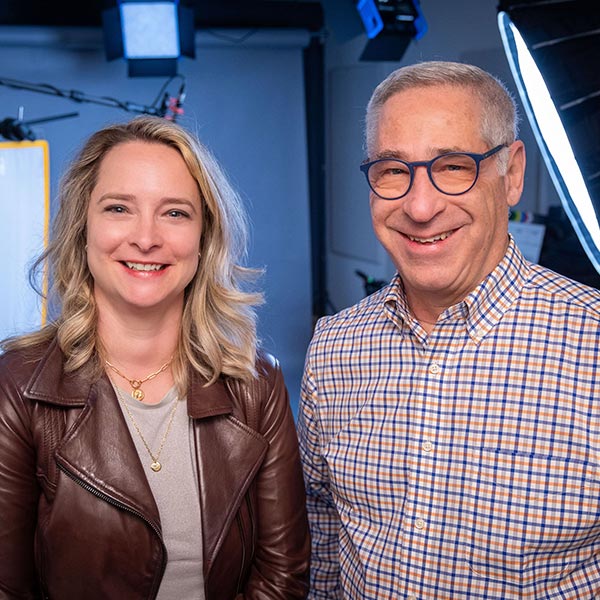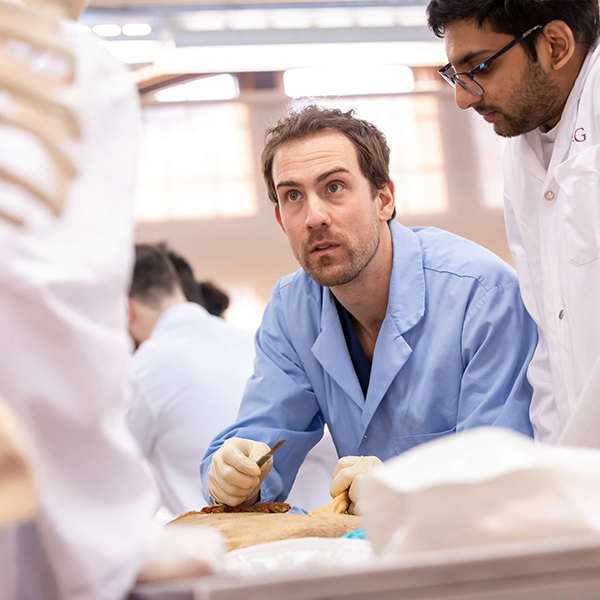From The New York Times to the Dallas Morning News, from Psychology Today to La Presse and media outlets across Canada, McGill experts are providing their perspective and knowledge on all aspects of the COVID-19 pandemic.
Dr. Jörg Fritz, an assistant professor in the Department of Microbiology, was one of several experts emphasizing the critical importance of testing in an interview with CBC News, while Dr. Mathieu Maheu-Giroux, an assistant professor in the Department of Epidemiology, Biostatistics and Occupational Health, recently spoke to La Presse about a study conducted in China indicating a possible link between gastro-intestinal symptoms and COVID-19.
Another McGill expert, Samuel Veissière, an assistant professor of psychiatry and co-director of the Culture, Mind, and Brain program, has been a familiar voice sharing his expertise with the National Post and The New Yorker on the nature of our response to the threat of the virus.
Many McGill experts are contacted through a list compiled by McGill’s Media Relations Office (MRO) and shared on the University’s website.
“The MRO created the experts list for media inquiries related to the COVID-19 outbreak in early January, when the virus was advancing in China and neighbouring countries,” says media relations officer Frédérique Mazerolle. “What started out as a handful of experts is now a curated list of nearly 50 faculty members from all academic disciplines.
“In the month of March alone, we’ve had more than 3,000 mentions in media outlets all over the world,” she adds.
Meanwhile, Joe Schwarcz and his colleagues at McGill’s Office for Science and Society (OSS) have become household names to many media audiences – especially in Montreal. Given the OSS mandate of demystifying science for the public and separating sense from nonsense, it’s hardly surprising that COVID-19 has generated myriad queries.
Schwarcz says he has seen a huge uptick in media requests for interviews, a trend reflected in the growing number of his Facebook followers which increased from 19,000 to 29,000 in ten days.
Some of the questions fielded by Schwarcz are a little unusual (Should we stuff Vaseline into our nose? Is it true that the disease is not caused by a virus but by proliferation of the 5G network? Can you sweat the virus out in a sauna? Is it true that eating alkaline foods can kill the virus?). No matter what the topic, the OSS provides a scientific basis for the evaluation of all questions and theories.
“Misinformation can lead people down the wrong path,” says Schwarcz. “If they think that putting a piece of cotton soaked in oil of violet up their rear is going to solve their problem, they may avoid physical distancing. If people think windshield washer fluid is an effective disinfectant, they can poison themselves with methanol.”
“In these strange and uncertain times, it is a priority for McGill to provide the media and the general public with balanced, factual and well-researched information,” adds Mazerolle.
Click here for a complete list of McGill experts versed in diverse issues related to the impact of COVID-19 including: health and medicine; business, consumerism and workplace practices; emotional regulation and wellness; children, teenagers and quarantine; politics and policy and misinformation and fake news.
Click here to learn more about McGill’s Office for Science and Society (OSS) and tune in to the OSS’s “COVID-19 and More: Conversations with the McGill Office for Science and Society” live stream. Watch live on the OSS Facebook Page and/or YouTube Channel Thursdays at 4:00pm. This week: McGill OSS director Joe Schwarcz, science communicators, Jonathan Jarry and Ada McVean, as well as Montreal emergency room doctor Debbie Schwarcz, will be taking your questions in real-time during the stream via Facebook or YouTube.


